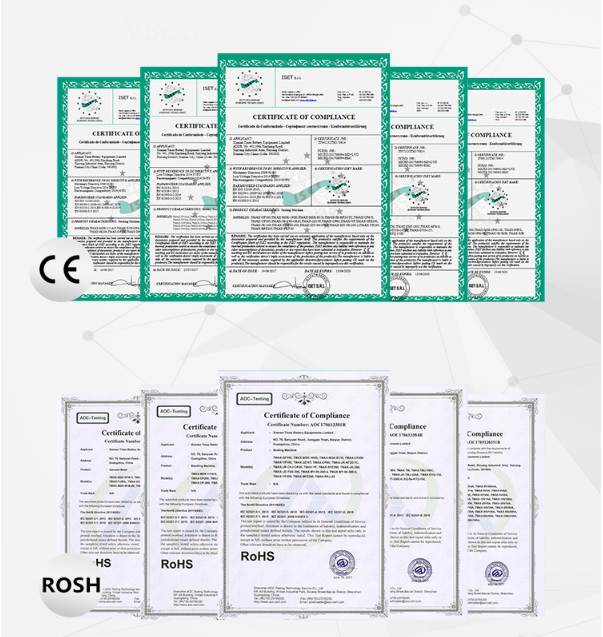- Battery Manufacturing Equipment
- Battery Laboratory Assembly Equipment
- Battery Pack Assembly Equipment
- Sodium Ion Battery Manufacturing Equipment
- Solid State Battery Assembly Line
- Dry Electrode Assembly Equipment
- Supercapacitor Assembly Equipment
- Perovskite Solar Cell Lab Equipment
- Li ion Battery Materials
- Ni / Al / Cu Metal Foam
- Customized Electrode
- Cathode Active Materials
- Anode Active Materials
- Coin Cell Parts
- Lithium Chip
- Cylindrical Cell Parts
- Battery Current Collectors
- Battery Conductive Materials
- Electrolyte
- Battery Binder
- Separator and Tape
- Aluminum Laminate Film
- Nickel Strip/Foil
- Battery Tabs
- Graphene Materials
- Cu / Al / Ni / Stainless steel Foil
- Battery Laboratory Equipment
- Li ion Battery Tester
- Battery Safety Tester
- Battery Material Tester
- Film Coating Machine
- Rolling Press Machine
- Electrode Mixer
- Coin Cell Crimping Machine
- Coin Cell Electrode Disc Punching
- Pouch Cell Sealing Machine
- Pouch Cell Stacking Machine
- Pouch Cell Forming Machine
- Pouch Cell Ultrasonic Welder
- Pouch Cell Electrode Die Cutter
- Cylinder Cell Sealing Machine
- Cylinder Cell Grooving Machine
- Electrode Slitting Machine
- Cylinder Cell Winding Machine
- Cylinder Cell Spot Welding Machine
- Electrolyte Filling
- Type Test Cell
- Other Battery Making Machine
- NMP Solvent Treatment System
- Vacuum Glove Box
- Lab Furnaces
- Ball Mill
- Hydraulic Press
- Laboratory Equipment
Lab Cylindrical Alloy Tool Steel Mold
Model Number:
TMAX-CATSMCompliance:
CE certificatePayment:
T/T, Credit Card, Paypal, LC, Western UnionDelivery Time:
3 Days
Wechat:13506084915
Lab Cylindrical Alloy Tool Steel Mold
Cylindrical split molds are also called easy-to-retract combined molds. Generally, three inner cores are combined to form a cylindrical cavity. The cavity size is the size of the sample that is press-formed. The inner cores are sleeved and fixed as a whole. After the pressing work is completed, the three inner cores are separated by quickly disassembling the mold sleeve, and the pressed powder sample is directly sampled without going through the demolding process, avoiding damage to the sample during the demolding process. This type of mold is mainly used to press some powder samples that are not easy to form or unwind, or because the thickness of the pressed sample is too high, the open valve mold is more suitable for such requirements. The size of general laboratory molds: 3-80mm, common size: within 6-30mm, the size of the pressed sample is customized according to user needs. Special mold size, specifications, shape, material, etc. can be customized according to customer needs.
Specifications
|
Name |
Cylindrical alloy steel mold |
|||||||
|
Actual drawing of molding sample |
|
|||||||
|
Compressible sample shape |
Round slices, cylinders, etc. |
|||||||
|
Mold material |
Alloy tool steel:Cr12MoV |
|||||||
|
Hardness of die indenter |
HRC60-HRC62 |
|||||||
|
Common mold specifications |
Φ3、Φ5、Φ6、Φ8、Φ10、Φ13、Φ15、Φ18、Φ20、Φ22、Φ25、Φ30、Φ32mm etc. |
|||||||
|
Sample size (≤) |
Ф10mm |
Ф20mm |
Ф30mm |
Ф40mm |
Ф50mm |
Ф60mm |
Ф70mm |
Ф80mm |
|
Mold cavity depth |
30mm |
40mm |
50mm |
55mm |
60mm |
|||
|
Mould dimensions |
Ф43×93mm Ф53×120mm |
Ф73×133mm Ф95×133mm |
Ф115×150mm Ф127×150mm |
Ф153×180mm Ф180×180mm |
||||
|
Mould weight |
0.75kg |
1.2kg |
3.8kg |
6.3kg |
14kg |
20kg |
30kg |
40kg |
|
Calculation formula of die pressure |
Area of oil cylinder/area of mould×reading of pressure gauge = actual pressure of mould. Do not overpressure! |
|||||||
|
Mould remarks |
Non standard customization, the above indicators are only for reference, can be customized according to customer needs of various specifications, materials, shapes of the mold |
|||||||







 ru
ru




 cindy@tmaxcn.com
cindy@tmaxcn.com David@battery-equipments.com
David@battery-equipments.com Wechat:13506084915
Wechat:13506084915